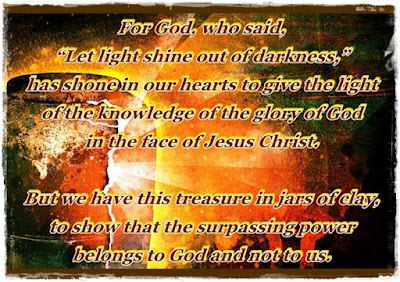How do you bring your "A game" and not be overly weighed down i.e. anxious over whether you will represent/honor/glorify God well?
By knowing you cannot and will not do things excellently on *your own, no matter what you do or how hard you try. Bringing our "A game" starts with and depends on God not us i.e. our humble dependence on God and his infinite love for us; our abiding in him, in his love.
 It is, however, up to us to trust and depend on God to empower us i.e. fully believing he loves us to the extent he does. Our challenge in honoring God well is greater dependence/humility (trust) not greater execution. Greater execution is the fruit of greater dependence. Honoring God starts with humility leading to excellence in execution.
It is, however, up to us to trust and depend on God to empower us i.e. fully believing he loves us to the extent he does. Our challenge in honoring God well is greater dependence/humility (trust) not greater execution. Greater execution is the fruit of greater dependence. Honoring God starts with humility leading to excellence in execution.
 It is, however, up to us to trust and depend on God to empower us i.e. fully believing he loves us to the extent he does. Our challenge in honoring God well is greater dependence/humility (trust) not greater execution. Greater execution is the fruit of greater dependence. Honoring God starts with humility leading to excellence in execution.
It is, however, up to us to trust and depend on God to empower us i.e. fully believing he loves us to the extent he does. Our challenge in honoring God well is greater dependence/humility (trust) not greater execution. Greater execution is the fruit of greater dependence. Honoring God starts with humility leading to excellence in execution.
Great execution flows out of great power. Great power is released in and through us by, in and through great humility/dependence on God who is the source of all power/life/love/Spirit.
Great achievement is the fruit of great execution. Great execution is the fruit of great effort. Great effort is the fruit of great power. Great power is the fruit of dependence on great love and its source i.e. God
For more on doing things with excellence click here.
For more on the necessity of great effort click here.
For more on how God's love empowers us click here.
___________________________________________________________
*It is not by sheer will power we live for God but by the power of God.
Eph3:16 "that according to the riches of his glory he may grant you to be strengthened with power through his Spirit (the Spirit of infinite love) in your inner being. 17 so that Christ may dwell (be present) in your hearts through faith—that you, being rooted and grounded in love, 18 may have strength to comprehend with all the saints what is the breadth and length and height and depth, 19 and to know the love of Christ that surpasses knowledge, that you may be filled with all the fullness of God.
Eph
20 Now to him who is able to do far more abundantly (able to answer the above prayer to a far greater extent) than all that we ask or think (then you may realize or even think to ask), according to the power (of his infinite love, by his Spirit) at work within us, 21 to him be glory in the church and in Christ Jesus throughout all generations, forever and ever. Amen."
This is the essence of how we live our life for God ...according to the riches of his glory..."
The adoration of the immense worth/glory of God is the essence of the life and love of God himself. This life and love starts with God and is grounded in who he is, as the triune God; who constantly gives and receives honor/love among the Father, Son, and Spirit. This same life and love is now fully ours, accessible and extended to us in Christ. It is this life (and only this life) we are enabled/empowered to live for God by.
...he may grant you to be strengthened with power
...through his Spirit
...in your inner being
What drives and empowers us to live for God comes from within, by Gods love/Spirit through faith.
"...so that Christ may dwell in your hearts through faith—that you, being rooted and grounded in love,..."
Christ's love frees and enables us to grasp the full extent of that love so we are full of God (his presence) and power.
"...may have strength to comprehend with all the saints what is the breadth and length and height and depth, 19 and to know the love of Christ that surpasses knowledge, that you may be filled with all the fullness of God.
The strength to grasp the fullness of God's love comes from God. Without it we will not see him as the loving Father he is.
The strength to grasp the fullness of God's love comes from God. Without it we will not see him as the loving Father he is.
20 Now to him who is able to do far more abundantly than all that we ask or think, according to the power at work within us, 21 to him be glory in the church and in Christ Jesus throughout all generations, forever and ever. Amen."







